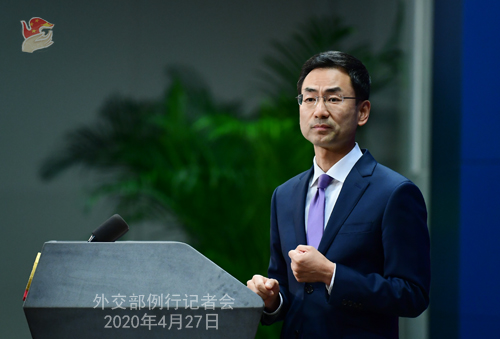China rejects 'economic coercion' claim by Australia FM


China on Tuesday refuted the claim of so-called economic coercion to Australia, calling upon Canberra to do more to promote international cooperation and mutual trust.
Foreign Ministry spokesman Geng Shuang made the remarks after Australian Foreign Minister Marise Payne said that Australia rejects economic coercion threats, referring to Chinese ambassador to Australia Cheng Jingye's remarks that the Chinese public might avoid Australian products and universities as a response to its pursuit for an independent inquiry into coronavirus.
In Cheng's latest interview with Australian Financial Review, the ambassador said that "the tourists may have second thoughts. Maybe the parents of the students would also think whether this place, which they find is not so friendly, even hostile, is the best place to send their kids to."
"Maybe the ordinary people will think why they should drink Australian wine or eat Australian beef."
Geng told reporters at a daily news conference that the Chinese ambassador to Australia is talking about the concerns that certain wrong remarks and actions by Australia lately have caused dissatisfaction among the Chinese people, which might have an impact on bilateral ties.
"I don't know where the so-called claim of economic coercion come from," he said.
As the pandemic undermined the global economy, China is willing to strengthen cooperation with other countries to jointly overcome difficulties, and contribute to the health and well-being of mankind, he said, adding that China hopes other countries will avoid being two-faced.
Geng noted that pushing for investigations and even advocating so-called accountability and compensation is political maneuvering.
The pressing task for the international community under the current situation is to strengthen solidarity, enhance mutual trust, and deepen cooperation to fight against the pandemic, he added.

































